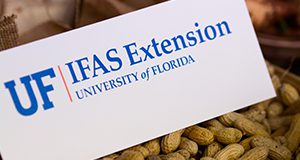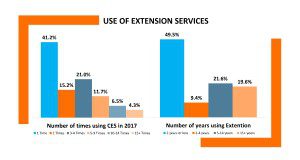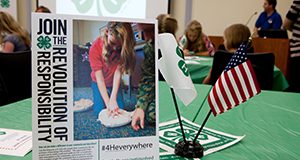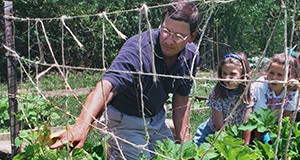This new 4-page document provides instructions on designing the question guide and conducting one-on-one interviews for qualitative data collection. It covers common types of interviews and their uses as well as strategies to use when asking the questions of the interviewee. This document is designed to accompany AEC676, Preparing for One-on-One Qualitative Interviews: Logistics. Written by Kathryn A. Stofer and published by the UF/IFAS Department of Agricultural Education and Communication.
https://edis.ifas.ufl.edu/wc338
Category: Program Development
Using Interest Approaches in Instructional Design and Delivery
Most educators know that it can be challenging to get students motivated to learn at the start of a lesson. The importance of student motivation, academic desire, and engagement is well noted as these factors have been directly linked to students’ academic achievement. An interest approach uses a brief activity to stimulate students’ situational interest toward a topic. Although situational interest is typically held by the learner for a short duration, establishing situational interest at the start of the lesson maximizes students’ engagement, motivation, and attentiveness toward the lesson’s topic and student learning objectives. This new 4-page publication of the UF/IFAS Department of Agricultural Education and Communication describes components of interest approaches and techniques for integrating them into a lesson, and provides real-world examples. Written by Brianna N. Shanholtzer, Andrew C. Thoron, J. C. Bunch, and Blake C. Colclasure.
http://edis.ifas.ufl.edu/wc334
Identifying and Meeting the Needs of Extension’s Target Audiences
This new 4-page article provides an overview of the concept of target audiences as relating to Extension education and briefly presents concepts of audience analysis and educational content selection. In contrast to the general population, a target audience is comprised of people who can take some explicit action to help solve an identified problem addressed by an Extension program. Sometimes they are also those most affected by that problem. An understanding of the concept of target audiences paired with intentional selection of appropriate educational activities and content can support an impactful Extension program. Written by Laura A. Warner, Glenn D. Israel, and John M. Diaz, this article is a publication of the UF/IFAS Department of Agricultural Education and Communication.
http://edis.ifas.ufl.edu/wc336
Program Evaluation Challenges for Early-Career Extension Professionals: What Can You Do to Reduce the Stress?
This article outlines meaningful strategies to overcome the program evaluation challenges that early-career Extension professionals face. The strategies outlined in this article are grounded in the experiences of Extension professionals in three states (Florida, North Carolina and Pennsylvania) and center on providing solutions to the challenges that newer Extension professionals felt were the most important to address, in order to provide a manageable framework for agents to use. This new five-page publication of the UF/IFAS Department of Agricultural Education and Communication was written by John Diaz and Laura Warner.
http://edis.ifas.ufl.edu/wc335
Establishing a 501(c)(3) Nonprofit Organization: An Overview
This new 3-page document provides an overview of the process to establish a 501(c)(3) nonprofit organization and also discusses eligibility criteria and filing requirements. Written by Jacqueline Phillips, Jorge Ruiz-Menjivar, Jennifer A. Jones, and Julianne Shoup, and published by the UF/IFAS Department of Family, Youth and Community Sciences, April 2019.
http://edis.ifas.ufl.edu/fy1481
Using Journey Mapping within Extension: A Tool for Supporting Behavior-Change Programs
 Extension is an important change agency, and Extension professionals use innovative strategies to help target audiences to adopt research-based practices and technologies. Tools from commercial marketing can be applied to behavior-change campaigns, often through an underused approach known as social marketing. Journey maps can be developed with Extension clients to provide insight into their progression and decision-making from one place or state of being to another. A journey can be the steps a person takes when selecting plants for the landscape, the decision-making process used when identifying agricultural business strategies, or the steps a person takes when leaving a workshop and travelling to their home. This new 9-page publication of the UF/IFAS Department of Agricultural Education and Communication, written by Colby Silvert and Laura A. Sanagorski Warner, presents possible applications of journey mapping within an Extension context.
Extension is an important change agency, and Extension professionals use innovative strategies to help target audiences to adopt research-based practices and technologies. Tools from commercial marketing can be applied to behavior-change campaigns, often through an underused approach known as social marketing. Journey maps can be developed with Extension clients to provide insight into their progression and decision-making from one place or state of being to another. A journey can be the steps a person takes when selecting plants for the landscape, the decision-making process used when identifying agricultural business strategies, or the steps a person takes when leaving a workshop and travelling to their home. This new 9-page publication of the UF/IFAS Department of Agricultural Education and Communication, written by Colby Silvert and Laura A. Sanagorski Warner, presents possible applications of journey mapping within an Extension context.
http://edis.ifas.ufl.edu/wc333
Clients’ Experience with FCES: Widespread Satisfaction Tempered with Suggestions for Improvement
The Florida Cooperative Extension Service (FCES) provides a variety of information to clients throughout the state. In order to determine the extent of client satisfaction, the FCES conducts an annual survey. The survey was sent to a sample of clients who have received educational information between March and July, 2017. A total of 1,202 participants responded, and 94.9% of Extension clients reported that they were satisfied or very satisfied with the overall services provided. Many Extension clients also shared suggestions for improving services, including improved communication, increased advertising, and increased availability for some classes. In this five-page document from the UF/IFAS Department of Agricultural Education and Communication, Glenn D. Israel and Tiffany Henderson summarize the results of the survey and provide recommendations for how to improve Extension’s services.
http://edis.ifas.ufl.edu/wc326
Engaging Millennials in the Workplace
Over 70 million adults born between 1981 and 1996 make up the generation of adults referred to as millennials, the fastest-growing group making up the present-day workforce, with 56 million currently employed or looking for work. One in three individuals in the workplace is a millennial. Because millennials make up such a large portion of the workforce, it is imperative that employers better understand them and understand how to engage them. This 2-page fact sheet written by Lauren Headrick Sweeney, Matthew Benge, and Hannah Carter and published by the UF/IFAS Agricultural Education and Communication Department discusses offers some strategies.
http://edis.ifas.ufl.edu/wc329
Florida 4-H Community Pride Leader’s Guide
Service learning is an important component of youth development because it allows youth to strengthen their critical thinking skills, leadership skills, and civic and social responsibility. This 5-page Leader's Guide will help you and your club members get the most out of the Community Pride Program. Written by Stacey Ellison and Grace Carter, and published by the UF/IFAS 4-H Youth Development Department, January 2019.
http://edis.ifas.ufl.edu/4h396
What is Understanding by Design (UbD)?
This 5-page document discusses Understanding by Design, an approach to designing curriculum that allows instructors to focus on desired learning outcomes and provide structure for student learning. Written by Tyler L. D’Angelo, Andrew C. Thoron, and J. C. Bunch and published by the UF/IFAS Department of Agricultural Education and Communication, January 2019.
http://edis.ifas.ufl.edu/wc322
Reframing Recognition in Organizations
Business leaders today are faced with challenges associated with employee engagement, recruitment, and the retention of top talent. One answer to these issues is employee recognition programs. This 6-page document discusses how to successfully implement an employee recognition program in your organization. Written by Matthew Sowcik, Hannah Carter, and Valerie McKee and published by the UF/IFAS Department of Agricultural Education and Communication, December 2018.
http://edis.ifas.ufl.edu/wc325
Leadership Skills Series #4: Working in Teams & Creating a Culture of Excellence
This 4-page document is the fourth publication in the Leadership Skills Series and provides Extension professionals with recommendations on how to utilize short leadership videos within the topics of working in teams and creating a culture of excellence. Written by Jera Niewoehner-Green, Matthew Sowcik, and Jennifer Wert and published by the UF/IFAS Department of Agricultural Education and Communication, December 2018.
http://edis.ifas.ufl.edu/wc321
Communicating to the Ages: Influence of Age on Florida Residents’ Informational Processing Behaviors
This 5-page document explores the results of a study in which Florida residents processed video messages about fertilizer best practices, with a focus on how their information-processing behaviors differed by age. Written by Amanda D. Ali, Laura A. Sanagorski Warner, Ashley N. McCleod, Shelli Rampold, and Alexa J. Lamm and published by the UF/IFAS Department of Agricultural Education and Communication, December 2018.
http://edis.ifas.ufl.edu/wc323
Leadership Skills Series #3: Communication & Conflict Management
This 4-page document is one in the Leadership Skills Series and provides Extension professionals with recommendations on how to utilize leadership videos to facilitate communication and conflict management. Written by Jennifer Wert, Matthew Sowcik, and Jennifer Niewoehner-Green and published by the UF/IFAS Department of Agricultural Education and Communication, November 2018.
http://edis.ifas.ufl.edu/wc317
Leadership Skills Series #2: General Leadership & Purpose/Values

This 3-page publication is the second in the Leadership Skills Series. It introduces four online videos that focus on everyday leadership, utilizing grit, finding one’s purpose, and learning how to feel good about work. Written by Jennifer Wert, Matthew Sowcik, and Jera Niewoehner-Green and published by the UF/IFAS Department of Agricultural Education and Communication, September 2018.
http://edis.ifas.ufl.edu/wc313
Key Program Outcomes for K-12 School Gardens Identified Through Expert Consensus
National trends indicate that school gardens are positioned to become fixtures in primary and secondary education. This 4-page document outlines key outcomes identified through expert consensus that can be used by Extension professionals to develop a logic model for the school garden program. Written by Susan Webb, John Diaz, and Catherine Campbell and published by the UF/IFAS Department of Agricultural Education and Communication, September 2018.
http://edis.ifas.ufl.edu/wc312
The Leadership Skills Series: Utilizing Videos to Address Leadership Skills
This 2-page publication is the introduction to the Leadership Skills Series, which looks at different leadership and professional development skills that can have a positive impact on the Extension workforce. Written by Matthew Sowcik, Jennifer Wert, and Jera Niewoehner-Green and published by the UF/IFAS Department of Agricultural Education and Communication, September 2018.
http://edis.ifas.ufl.edu/wc310
Understanding the Barriers for School Garden Success: Expert Consensus to Guide Extension Programming
Research has found that youth involvement in school gardens leads to numerous benefits. However, teachers and support organizations must overcome barriers for garden sustainability. This 4-page document discusses barriers for school garden success and how Extension faculty can help education professionals overcome them. Written by Susan Webb, John Diaz, and Catherine Campbell and published by the UF/IFAS Department of Agricultural Education and Communication, August 2018.
http://edis.ifas.ufl.edu/wc315
Teaching and Learning: Motivating Learners
Motivation is a process that drives individuals forward. Educators must be aware of the continuum of motivation and appropriately provide opportunities for student engagement, learning, and growth. This 2-page document discusses how to motivate learners. Written by Isabella Damiani, Andrew Thoron, and J. C. Bunch and published by the UF/IFAS Department of Agricultural Education and Communication, May 2018.
http://edis.ifas.ufl.edu/wc305
Utilizing Demonstrations in Teaching, with An Example Demonstration of Plant Propagation via Cuttings
In a learning environment, it is important to provide instruction to each type of learner. This 4-page document discusses utilizing demonstrations for different types of learners and includes a sample demonstration of plant propagation. Written by Isabella Damiani, Andrew Thoron, and J. C. Bunch and published by the UF/IFAS Department of Agricultural Education and Communication, May 2018.
http://edis.ifas.ufl.edu/wc306















